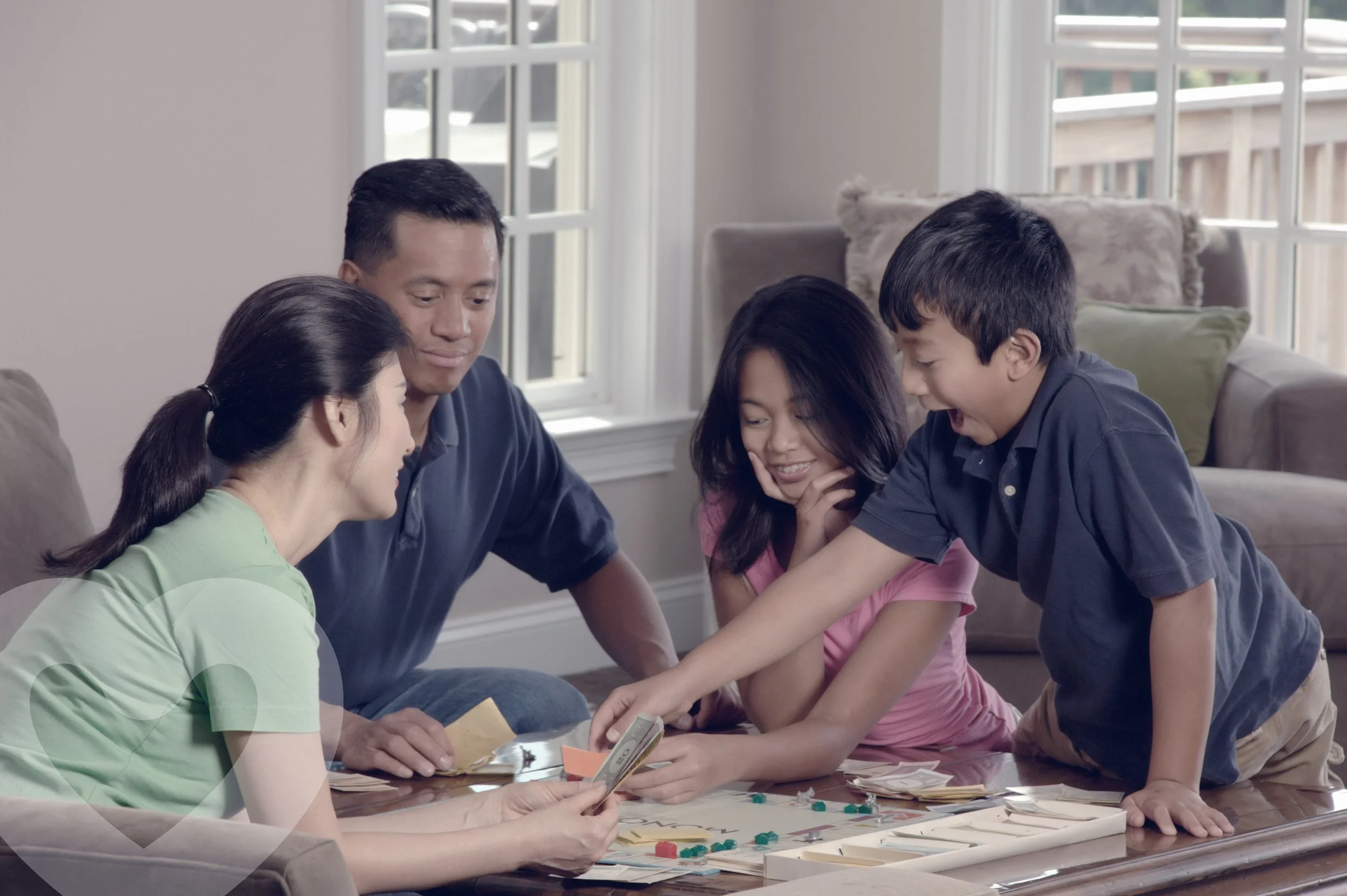Creating Healthy Habits: Ideas for Your Next Family Night.
At the end of a busy week of conflicting schedules full of appointments, there is no better way to come together and connect as a family than having a routine family night to look forward to.
Growing up, my favorite night of the week was Saturday night, when we rented movies from Blockbuster (my age is showing), loaded up on snacks, and pulled the spare bed into the living room to have a “living room campout.” When it was warm during the summer months, we moved the party outside and would look through the telescope, instead of watching movies and would “camp” in the backyard.
These routine moments of connection have stuck with me as I’ve gotten older and now live apart from my siblings with whom I shared these memories. These special memories have helped shape my own family evenings as a parent and hopefully will create special moments for my kids to reflect on one day.
Not all families have the same dynamic that I grew up with. Families come in all shapes and sizes, but planning a family night doesn’t have to be extravagant, expensive or complicated.
That’s why we want to help spark your next family evening with some fun and simple ideas to get you started!
Keep it simple
A family evening is about connecting, not blowing your entire budget. You can have fun without overspending. A great way to spend a nice weekend day together is simply going for a family walk or going to the park. Getting outside is great for everyone and it’s free! In the fall, you can check out local apple orchards that offer apple picking, or just go for a nice fall walk to smell the changing of the season. Family night doesn’t have to be away from the home either, an evening spent on the porch watching the sun go down and talking about the day over some hot chocolate is a cozy way to close out the day.
Cook a new meal together
The kitchen is the heart of the home - stories are shared and memories are made when we gather to share a meal or prepare one together. Cooking together as a family can be a special time to make and share memories of joy and, if you are a parent of toddlers, chaos. Try picking a new meal for family evening once a month to mix into the rhythm of family evening and see what exciting new cuisines you can discover together. The clean up can also be a great way to connect as a family and teach independence and responsibility.
Or get take out as a special treat
How about a night off from cooking? Order takeout from your favorite restaurant, dine in or try somewhere new! Make it fun and involve the kids by having them choose the restaurant.
Board games
Put away the screens and connect over a little friendly competition by playing a board game or putting together a lego set. The world of board games has changed tremendously, becoming more complicated, involved, and strategic. There are tons of options depending on interests, age, and skills. Check out Board Game Finder online for a customizable search to find your next board game.
Backyard camping
Get out the tent and sleeping bags and get ready for s’mores and scary stories (or not-so-scary stories for littles). Camping in your own backyard can be a real adventure. Take the time to explore your own backyard and talk about the plants and animals that live there. Don’t have a backyard? No problem! You can camp in your living room and make s’mores on the stove! Make it an arts and crafts night and paint pictures of the type of animals you would find in the forest and hang them up - just leave the campfire outside.
Build a fort in your living room
Ideal for young kids, it could also be the right kind of silliness for older kids too! Use mattresses, couch cushions, and pillows to build a fort or bounce house. This can be great for getting out pent-up energy and giggles before bed for a restful night’s sleep. The fort can double as a cozy spot to watch movies and enjoy snacks too!
Plan a treasure hunt
If your budget allows, buy a small gift, book, or treat and hide it somewhere. You can also get creative with what the “treasure” is and make the treasure a clue for the next family night activity. You can make a special treasure chest and decorate it to make for a real treasure hunt. To make a treasure map: use tea to stain the paper to look like an old scroll, draw directions on how to find the buried treasure with a big red X to mark the spot! You can make it a longer hunt by adding an element of scavenger hunt to the map and giving clues along the way to find the treasure!
Epic hide and seek
Hide and seek is a classic family activity and can vary in difficulty. For younger kids, classic hide and seek is a great activity and can be hilarious when a toddler thinks no one can see their feet poking out from under the bed. For older kids, hide and seek in the dark can bring an extra level of excitement.
Go to the library and check out books to read together
There is something special when you’re a child (and an adult, let’s be honest) about going to the library and walking through the aisles of books and choosing your very own to take home and pour over. It’s a great way to connect over shared interests or discover new ones. Take an afternoon to go to the library and choose new books to read over the weekend. You can even make a cozy reading nook and some treats and cocoa to enjoy while everyone reads their new books!
Things to remember:
It isn’t about how much or how little the activity costs, what’s important is that you’re spending time together consistently and creating a predictable routine to spend that bonding time together as a family. Many children in foster care come from a home where there is no routine, or the routine is broken. Routine makes children feel safe and loved and helps them process trauma and big emotions by having something solid and dependable they can count on.
Promote healthy decision-making skills and boost independence and confidence by letting your child or children choose the family night activity, and where to get snacks or dinner. Giving children a say in what they want or don’t want to do helps them develop important life skills like being able to speak confidently about how they feel or if they are experiencing something unsafe somewhere in their life. Establish a rotation each week where a different family member gets to choose the activity.
Another important thing to remember is to put devices away and be present during family time. Being engaged and present also helps children feel loved and supported and helps with providing a safe space for conversation and connection.
If you or someone you know is looking for family support services, we may be able to help. Contact us and a representative can help guide you.


